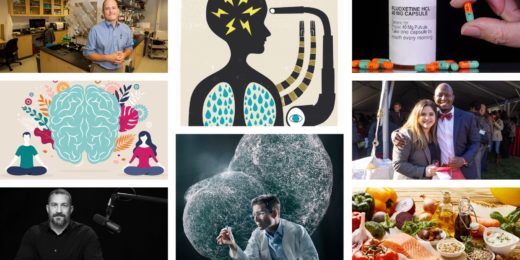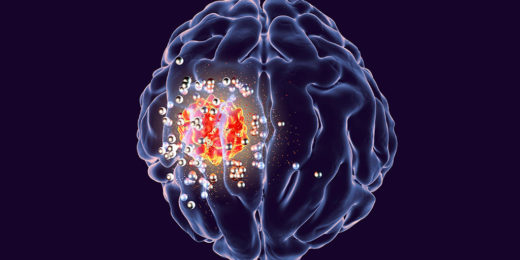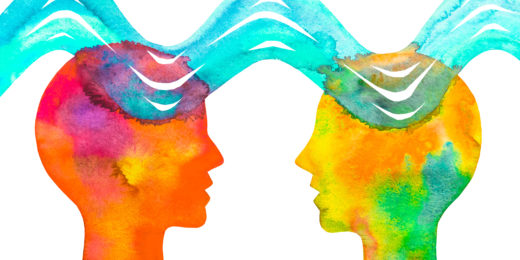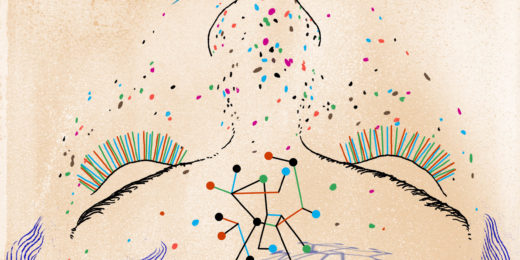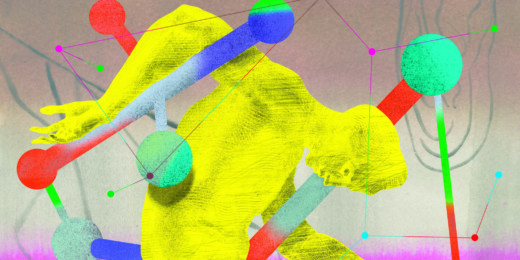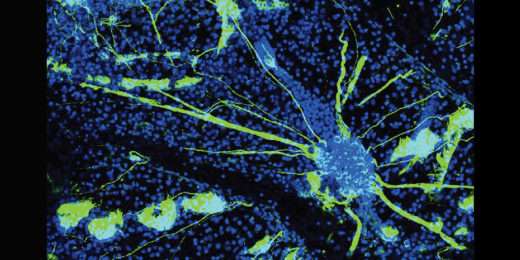Stanford Medicine researchers showed that five minutes a day of breathing exercises can reduce overall anxiety and improve mood.
Category: Neurobiology
Looking for love in all the wrong hormones
Researchers have found that oxytocin, commonly known as the "love hormone" may not be crucial for the social behaviors it's known for.
A 2022 recap: Most read, most viewed and most popular on social media
As the year comes to a close, we're sharing the most-read stories, most-viewed videos and most popular stories on social media of 2022.
A big jump in prosthetic vision
By devising special pixels, Stanford University researchers have enhanced prosthetic vision with a new implant that improves vision.
We are Stanford Med: #ThisIsMyWhy with Ben Rein
Postdoctoral scholar Ben Rein is equally passionate about his neuroscience research and educating the public about science via social media.
Wireless implant could help remove deadly brain tumors
Brain tumors are among the most deadly and difficult-to-treat cancers. Glioblastoma, a particularly aggressive form, kills more than 10,000 Americans a year and has a …
What can squid brains teach us about nervous system evolution?
Researchers are studying the bobtail squid to learn more about the evolution of intelligence. Their focus is on "large genes."
Ask Me Anything: Neuroscience with Andrew Huberman
Andrew Huberman joins Stanford Medicine in an Ask Me Anything featuring topics such as human behavior and neuroscience.
Do synchronized brains predict happy marriages?
Researchers found that couples who share similar brain activity while watching movie scenes about marriage report happier relationships.
Molecules, shmolecules. Why should you care?
We explore the most basic molecular elements of human biology in the lead story for the latests issue of Stanford Medicine magazine.
Mucus: Outtakes on a molecule of major significance
Researchers are making connections between the role of mucus and human health -- both in the brain and the lungs.
Stanford Medicine magazine explores the molecules within us
Stanford Medicine magazine explores the molecules behind human biology and how understanding them fuels medical discoveries and innovations.
Building a ‘BUDI’ to help kids with cerebral palsy
Stanford med student designs biofeedback app meant to encourage children with cerebral palsy move their arms to build strength.
Can we rejuvenate aging brains?
A Stanford Medicine researcher discusses his neuroscience-driven investigation into aging and if it's possible to rejuvenate an aging brain.
What can sea squirts tell us about neurodegeneration?
Researchers have found parallels between the degeneration of a neurons in a tiny sea invertebrate and the human brain.
The science behind muscle memory
Stanford Medicine researchers tracked memory formation in real time, watching how muscle memory is created.




